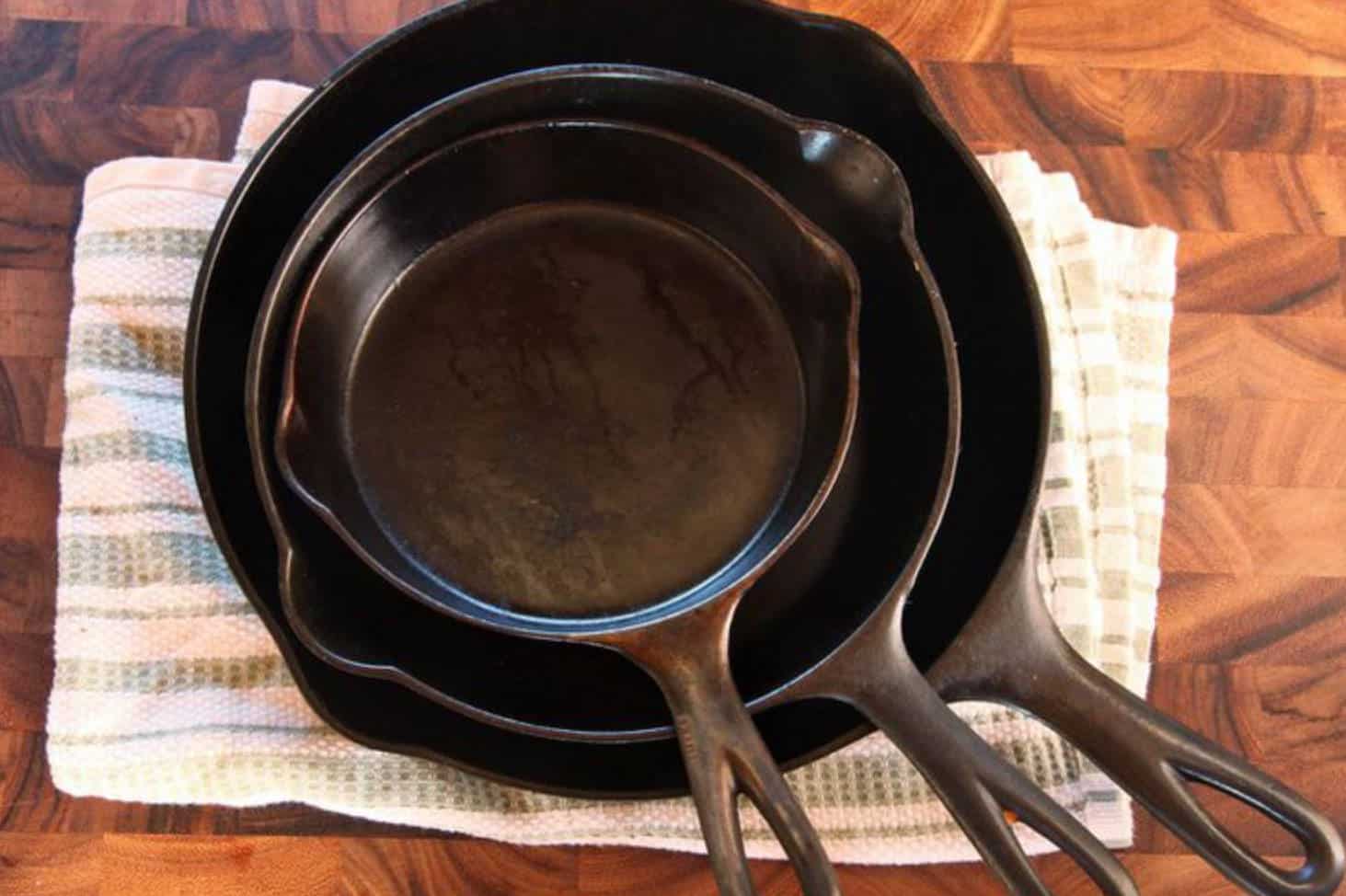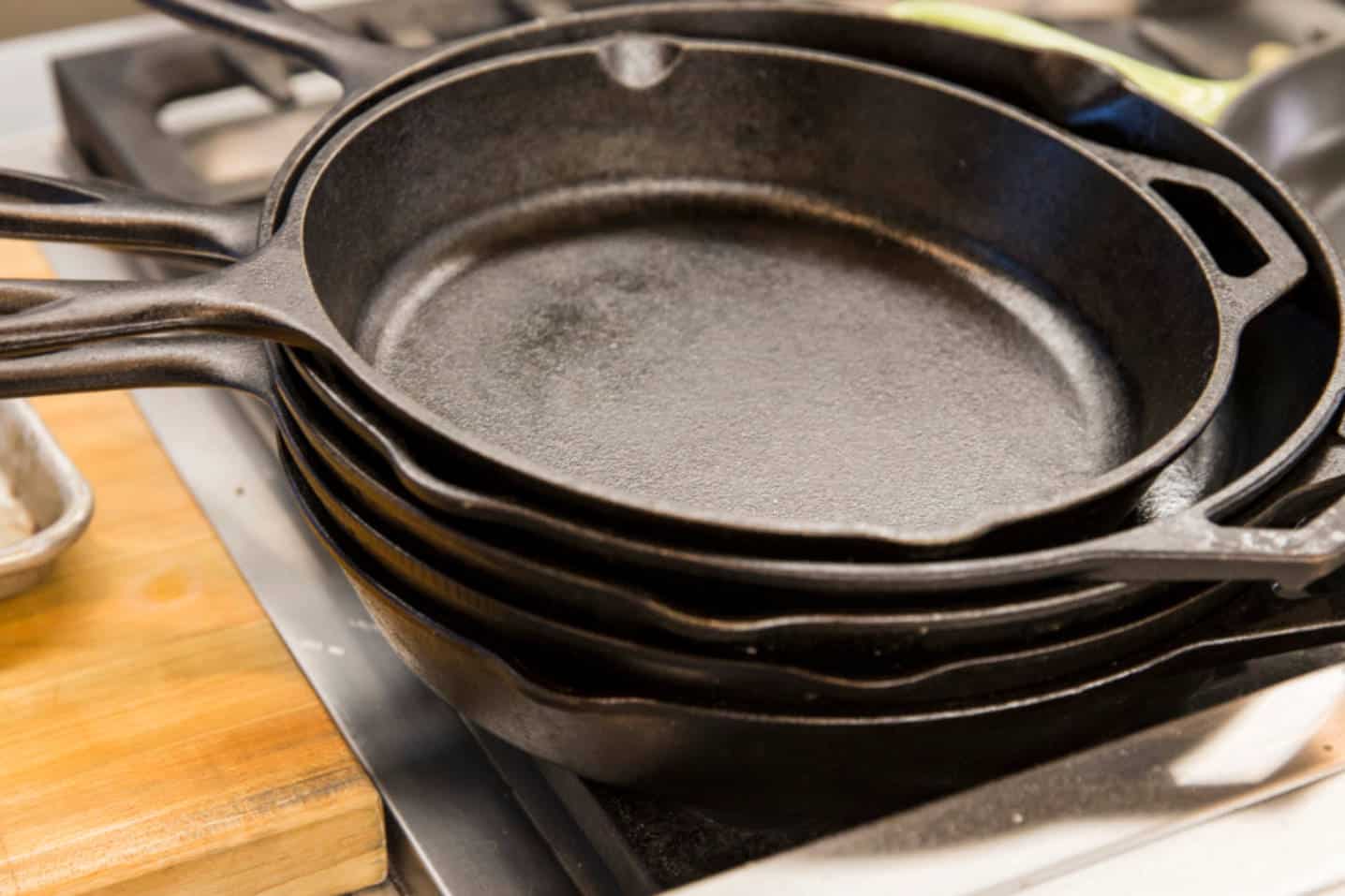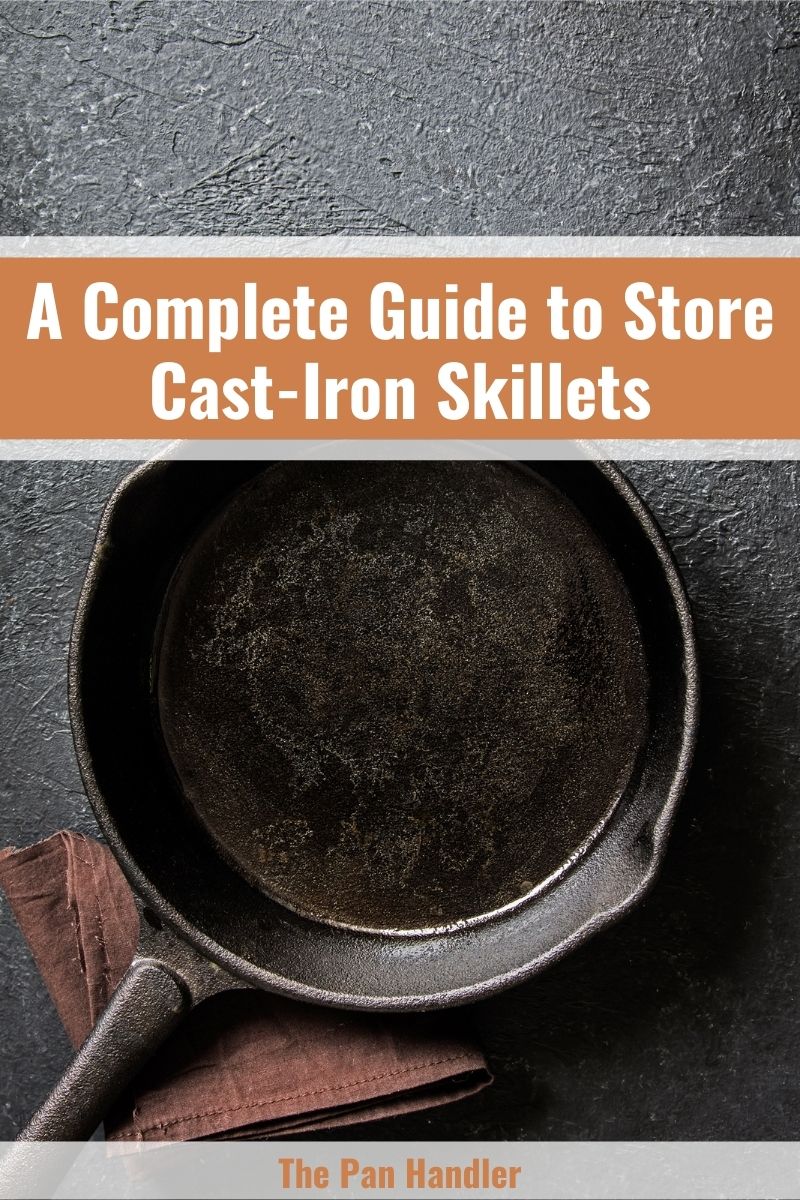
Cast iron skillets are unquestionably one of the most long-lasting pieces of cookware in your kitchen. If they are cleaned, maintained, and stored properly, they can last a lifetime and be passed on through generations.
It is essential to understand how to keep cast iron skillets properly. Whether you plan to buy cast iron skillets or you already have them, read on to learn how to store them properly.
Things to avoid when storing cast-iron skillets
Do not store them when they are still wet
When keeping cast iron, it is best to keep it dry.
In actuality, this is a no-no for all cookware, not just cast iron. Storing them damp is a no-no. It’s like enticing rust to grow and stay in the pans if you store them while they’re still wet. Dry the entire surface, inside and out, to ensure no liquids remain.
The best way to ensure they are completely dry is to place them on a low-heat stove and let the moisture evaporate. If you don’t want to store them wet, don’t put them in a moist place once it’s entirely dry.
Do not store them without cleaning
Black as coal, a well-seasoned cast-iron skillet hides any food residue that could be left behind. Mold can form on food that is stuck to a surface, leading to rusting. On top of that, it’s downright repulsive.
Make sure to clean your cast iron before storing it carefully. Even tiny amounts of food residue can cause the cast iron to rust by trapping moisture, and the rubble can taint the flavor of the food you cook in the pan.
A plastic scraper, a scrubbing sponge, hot water, a scrubber sponge, or even kosher salt might all be helpful in this process.
Do not use sharp materials that can harm the non-stick coating.
Rubbing oil on the skillets between uses
A thin layer of oil is the best way to keep cast iron from rusting. When exposed to moisture in the air, an unseasoned skillet will quickly deteriorate, but not if it has been rubbed with oil first.
Before storing your dry pans, always apply a thin layer of cooking oil and wipe away the excess with a paper towel, as you would when seasoning a pan. If you make this a regular habit, your pan will be better protected and strengthened.
Do not stack them without protection
Cast-iron pots and pans can be stacked without damaging one another. Smaller cast-iron skillets and pans can be nestled inside bigger ones.
Use paper towels, newspapers, or cork trivets to divide the pans into sections. Doing so will keep the seasoning intact and keep it from rusting and absorbing moisture.
A set of lid guards is a good idea if your skillet comes with one already attached. In addition to protecting against nicks and chips, these small plastic attachments also help to circulate air and prevent moisture from condensing inside the pan.
They are placed on the pan’s rim. Now that you know the thing you need to avoid when you store your cast-iron cookware, the next thing you should know are the different ways of keeping them.
Storing cast-iron skillets by hanging them
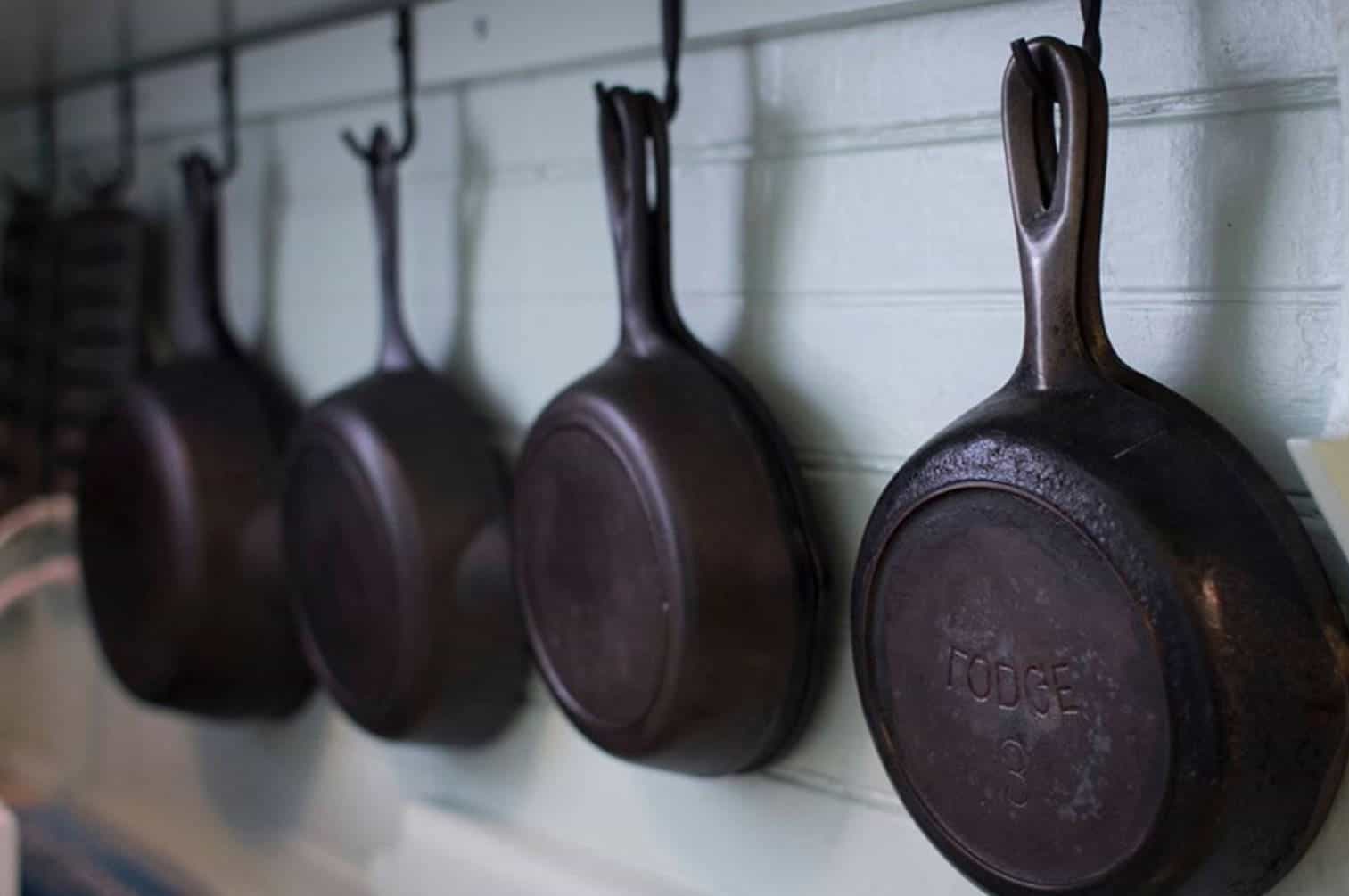
Hanging cast-iron skillets on the wall is the best method of storing them. Hooks that can support the weight of your pots and pans can be mounted to the wall. The wall hooks must be solid and well-anchored to withstand the weight they carry over time.
Additionally, hanging them not only saves space but also serves as an attractive kitchen decor, especially if you have an impressive collection of high-quality cast iron cookware.
As a second benefit, hanging cast-iron pans keeps them from rusting. The air can evaporate any water that might get inside.
Storing cast-iron skillets by placing them inside the cabinets
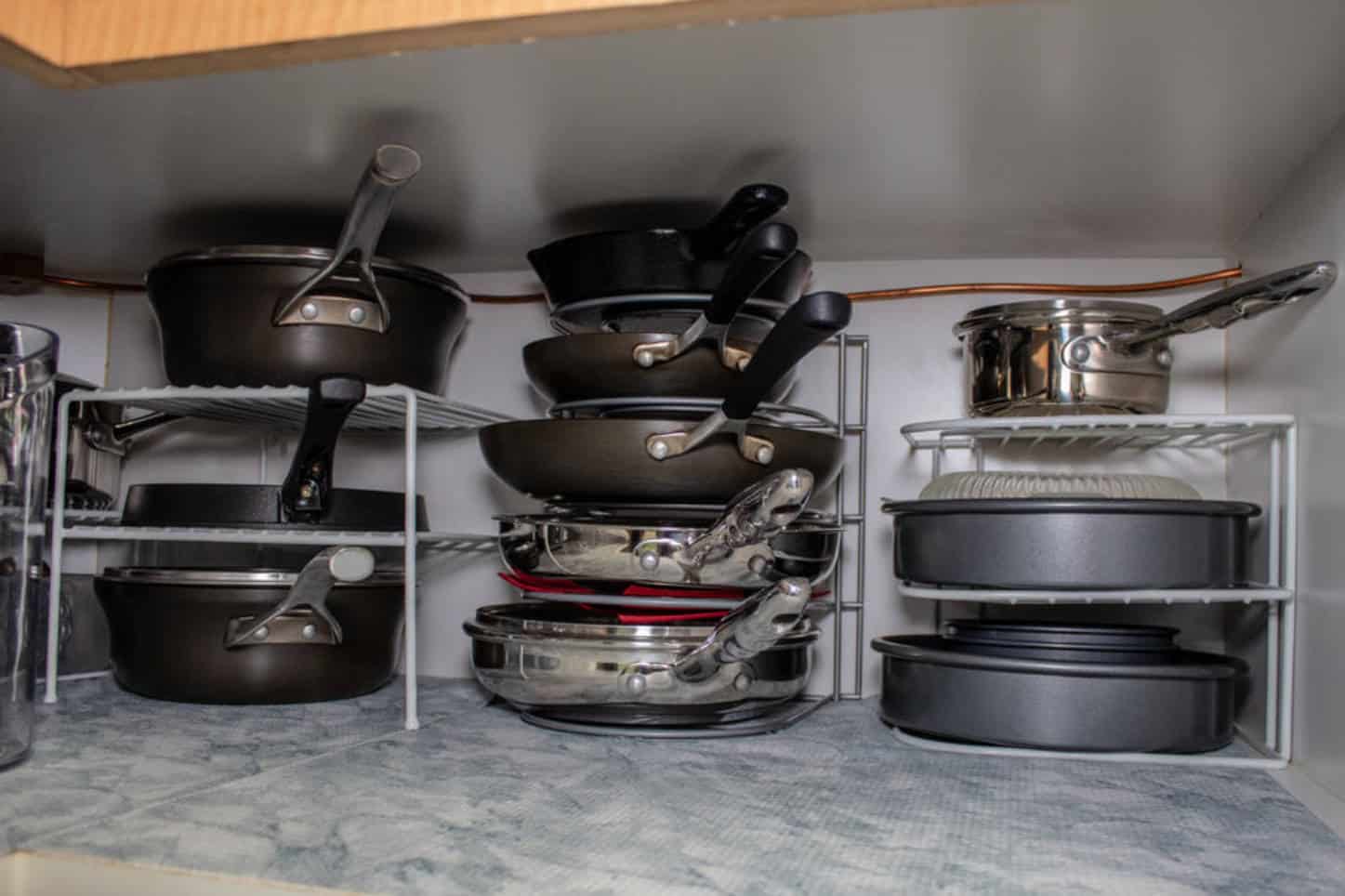
Among the many options for storing cast iron, cabinets and cupboards stand out as the most logical choice.
Cast iron cookware can be safely stored in most kitchens if it is not kept directly next to or underneath the sink.
Because the cast iron is heavy, you’ll need to ensure the shelving units are strong enough to handle it. When storing cast iron cookware, this is especially important.
Aside from making sure the pans are dry, you also need to check that the cabinets are dry and free of any moisture. There should be no leaks, and the cupboard isn’t damp before putting your skillets and pans away. A dry cabinet should be checked.
Storing cast-iron skillets by placing them inside the oven
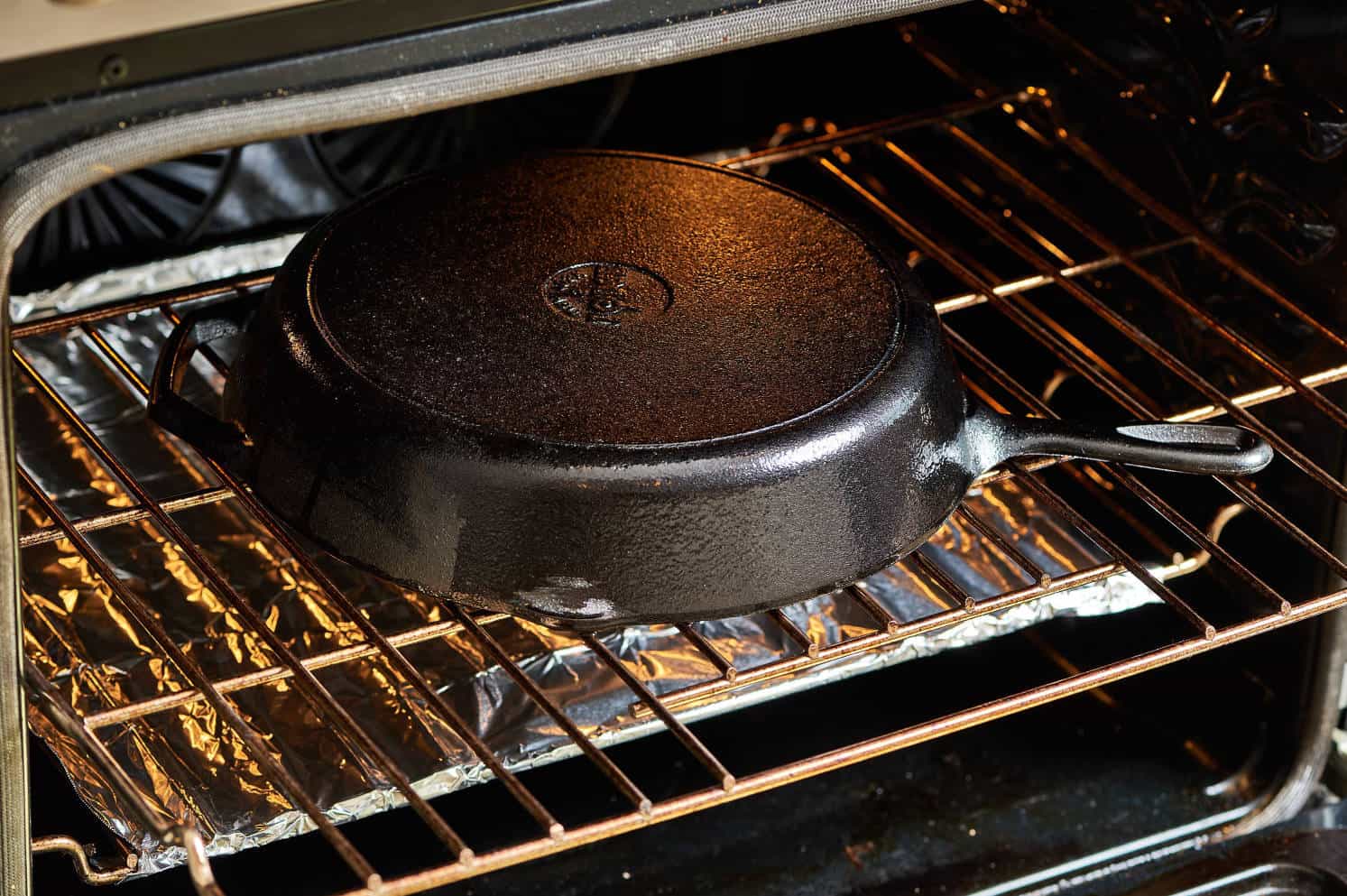
The oven is an ideal dry place for storage, but only if free of wooden components.
A kitchen towel or paper should protect each piece if you plan on stacking them in the oven on top of each other.
Remember to remove the skillet carefully before starting the oven to heat up. If you’re going to store your cast-iron pans in a drawer, make sure they’re completely dry before putting them away because rust can form if they’re wet.
Storing cast-iron skillets by placing them on the stovetop
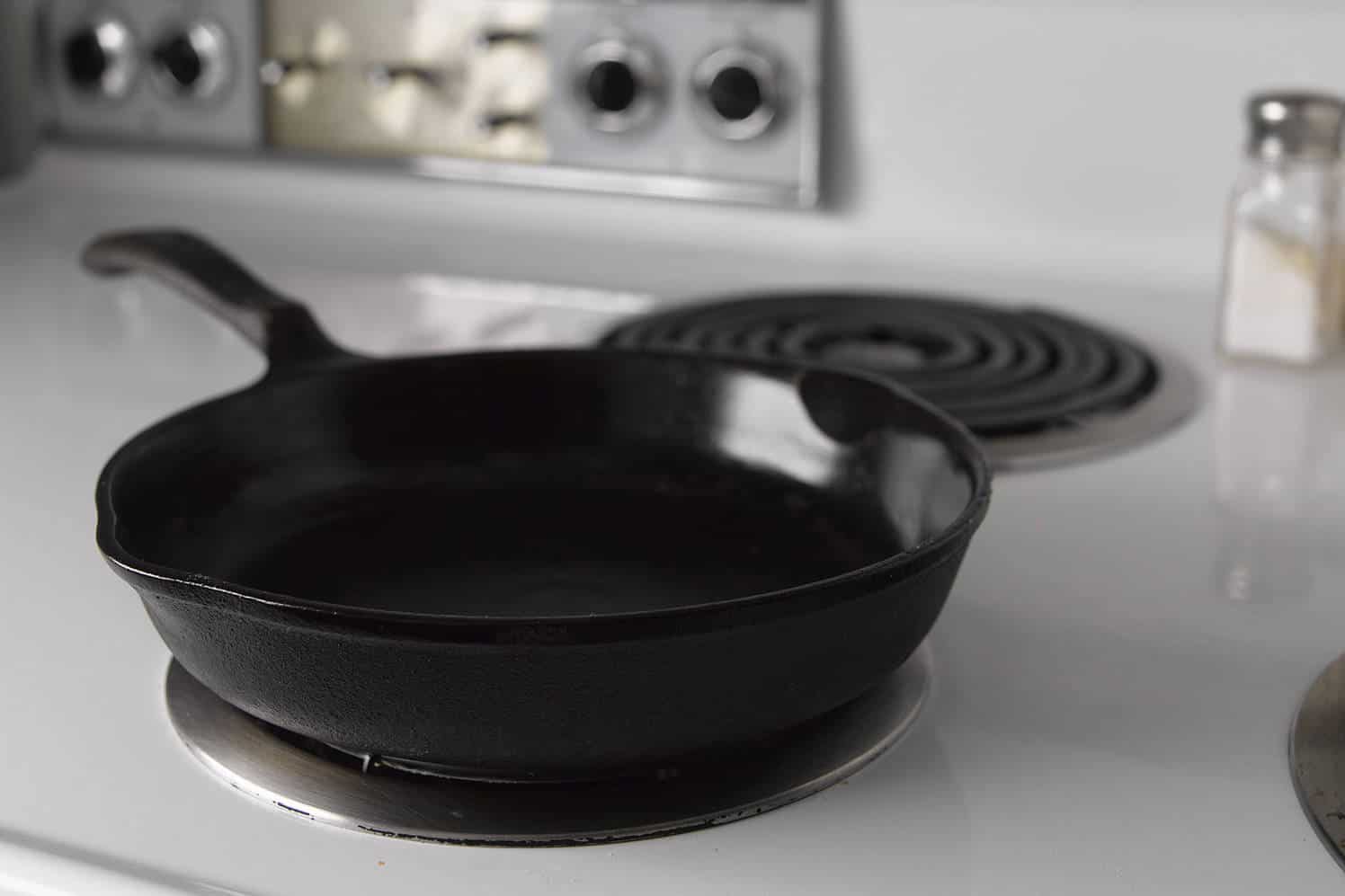
You can keep your cast iron pans on the stovetop if you don’t have enough space or if your pans don’t fit the shelves.
If you use your cast iron cookware regularly, this method is ideal; however, it may become cumbersome if you only do so on rare occasions. Keep the stovetop clean and dry at all times.
When you leave your cast iron pans out on the counter, they may become covered in dust and dirt. There’s a quick fix. Leave them covered or upside down on the stovetop for a few minutes.
But remember to remove them from the stovetop if you will cook using another cookware. Water, sauces, and other liquids should be kept away from them.
Conclusion
The next time you don’t intend to use your beloved cast iron cookware, you’ll know exactly where to put it. The most important thing to remember is to store them in a dry and free of any moisture environment.
Keeping cast iron skillets in cupboards is a good idea, but there are other options if you’re short on storage space. If you follow the storage tips above, you can keep them around for many years and even generations, in addition to properly storing cast iron pans.
Pans made of cast iron are excellent investments. Properly maintained, they will be a reliable asset in your kitchen.
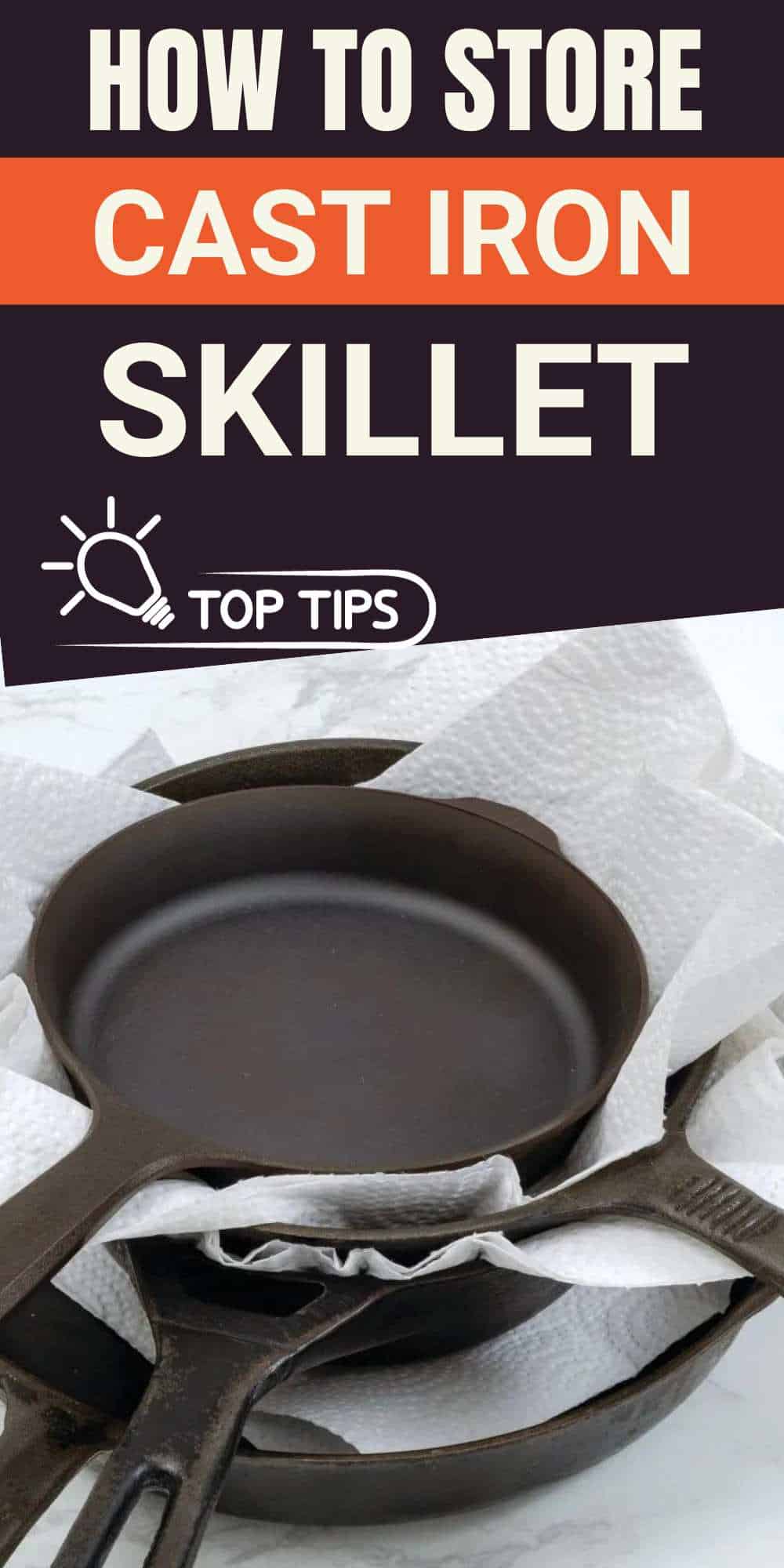

Michael Johnson is the founder of Pan Mastery, Inspired by his blacksmith grandfather’s legacy has a deep appreciation for hand-crafted pots and pans, he provides invaluable guides, reviews, and recipes to enhance your culinary journey.

